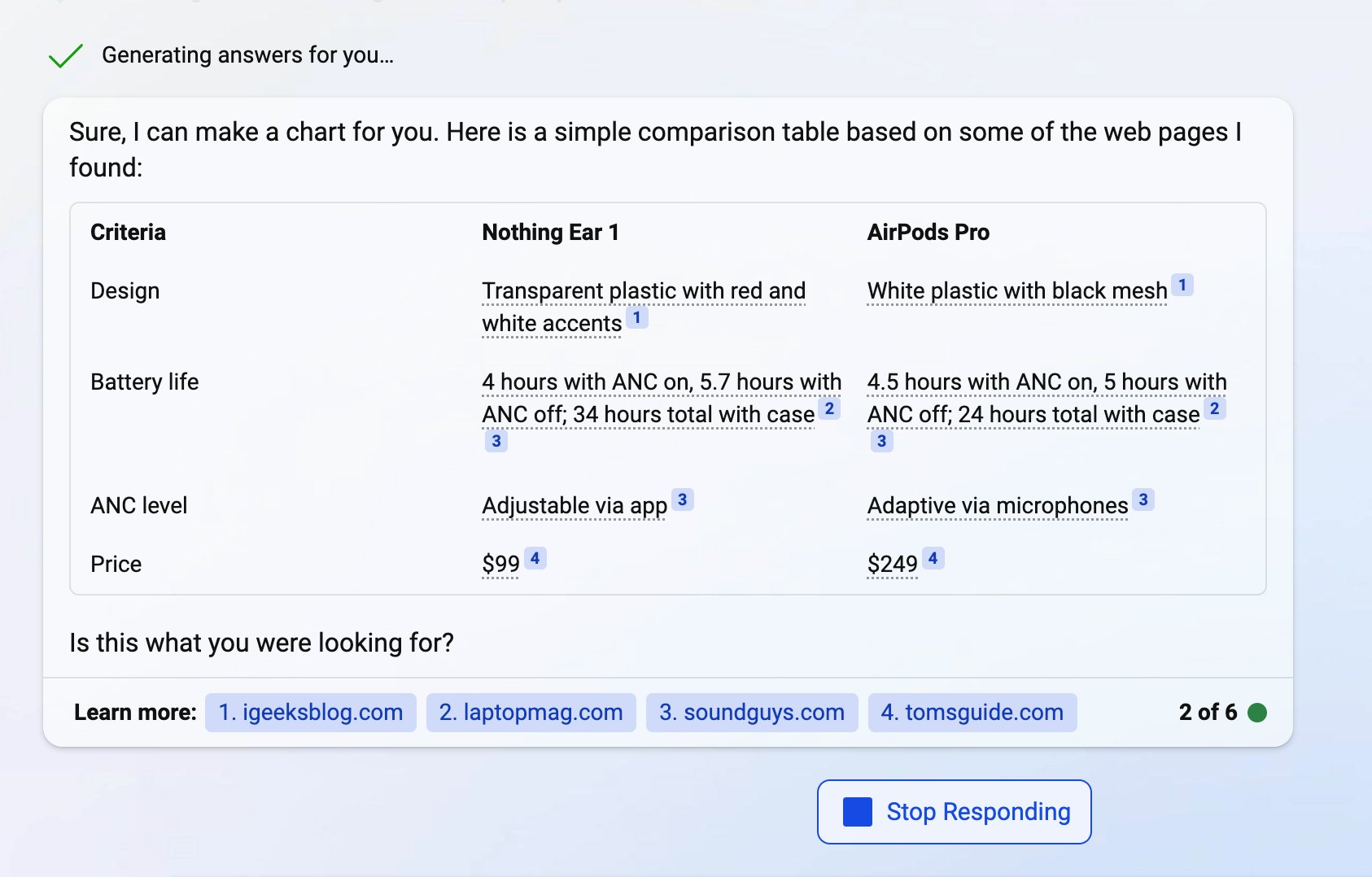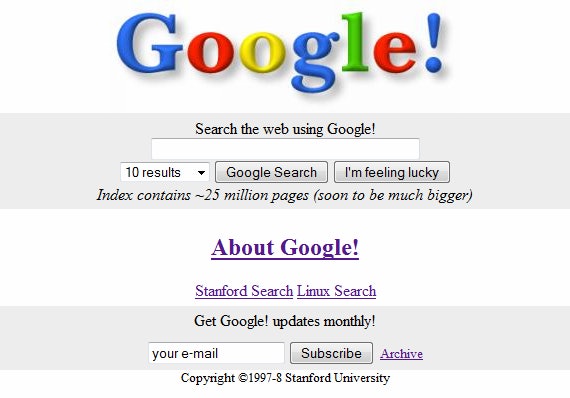
The word “Google” has been in the Oxford English Dictionary dictionary for almost 20 years. Feel old yet? I sure do. But no matter how old I feel, it doesn’t stop things — even things as ingrained as internet search — from changing.
Arguably the biggest shift in search right now is coming at the hands of Microsoft and its next-gen Bing. With the help of OpenAI’s new chatbot, ChatGPT, Bing is making a case as the Next Big Thing in how we interface with our ballooning vortex of online information.
Search though it may be, the conceit of new Bing is something of a paradox. What I mean is that Bing’s mission is both simple and abstract. Microsoft hopes that by using ChatGPT-powered search, information-seekers will be able to discover not just what they want to know in the present, but what they didn’t know they wanted to know in the future.
Confused yet? Well, that’s just the problem.
Bing it on
I got a chance to spend some time with The New Bing — which is still in preview as of writing — and my impressions are as broad and far-ranging as Microsoft’s ambitions for OpenAI’s ChatGPT bot.
My first reaction, however, is elation. During a demo with Microsoft, I was walked through some of new Bing’s marquee features. To take advantage of ChatGPT-powered search, users can navigate to a couple of different menus within Bing’s interface.
The first, and probably the most useful, feature that incorporates ChatGPT is “Chat” — a tab located directly next to the bread-and-butter “Search” function, which tells you just how important Microsoft thinks chatbot-enabled search is.
During my demo time, I was shown how Bing’s chat feature is capable of generating different types of content based on different prompts. A query to create a vacation itinerary, for example, generates site-seeing recommendations, airfare, lodging, and even near-future weather forecasts.
In real-time, you can watch Bing and ChatGPT pull from sources across the internet to create a curated list of recommendations. And before you roll your eyes and call Bing “spicy autocomplete,” let me clarify; the magic of ChatGPT isn’t just in the generative aspect of Bing’s Chat feature, it’s in how the bot handles your query after you’ve already searched.
For example, my personal request to create a travel itinerary to New Orleans doesn’t even elicit immediate answers, it prompts, instead, more questions. When am I planning to go? How many days do I have? What is my budget? What are my interests and preferences?
Using those metrics, Bing spits out an itinerary of swamp tours, cajun dining, cemetery walks, and jazz clubs pulled from recommendations by TripAdvisor, Eater, Timeout, and others. In this case, Bing (and ChatGPT) isn’t the window to my search experience, it’s the chaperone.
Travel itineraries aren’t the only application, obviously. You can query Bing’s chatbot for loads of stuff. Comparing products, for example, is made simpler by adding the ability to generate feature comparison charts.
Your mileage on that front may vary. Sometimes, if you’re lucky, Bing will pull information directly from the source of a product. Sometimes, however, Bing will rely on (less reliable) third-party information, like in the case of this chart I self-generated to compare Apple’s AirPods Pro and Nothing’s Ear 1 wireless earbuds. Can you spot the inaccuracy? No? It’s the price. Nothing’s Ear 1 is now $150, not $99 (the previous price) as Bing suggests.

Microsoft was clear to me when I asked about accuracy that vetting the reliability of information produced by its charts is the job of the searcher and not Microsoft itself. In its defense, Bing does include annotations on its charts that users can hover over to verify where the information was sourced from. Whether your average user will take the time to check annotations or be proficient enough in media to decide whether or not a source is indeed trustworthy, however, is an entirely different can of worms.
Under the hood of everything that Bing’s chat feature does is Microsoft’s proprietary AI model called Prometheus. While its connotation (stealing fire from the gods) is maybe a bit grandiose, the speed at which Prometheus combines the language models of ChatGPT and real-time information from Bing is undeniably impressive. Again, whether that real-time information is as reliable as Microsoft hopes it will be is a different story.
It’s clear the obstacles to Bing becoming a truly pivotal product are not small ones. And as monumental as ensuring the accuracy of information should be, Microsoft would be lucky to have that problem — it means there are enough people using its new engine to warrant it.
But what happens if Microsoft’s Bing issues aren’t technical? What if they’re existential?
Learning how to un-Google
Using Bing requires training. Maybe not a technical certification or bachelor’s degree, but time and effort spent understanding what the product does, what it could do in the future, and how you should be using it.
For other technologies, that educational gap might not be such a big deal. But search is not every product, it’s a damn-near public utility. When most people search for something, they want information, and they want it fast.
That’s the Google in us — the part that comes out when we’re arguing with a friend over what year Ridley Scott’s Blade Runner was released, or how to get red wine out of a white rug, or where the nearest urgent care is.

Those search situations (or similar ones) are ones that we’ve all found ourselves in more than once. They’re also not things that I could confidently say that Bing is better at navigating than a standard Google search.
But Bing does have utility, and it isn’t always slow. Microsoft has been in the game for a long time, and while it doesn’t always have the right idea, it doesn’t throw $10 billion at just anything. I see Bing’s usefulness most clearly when I’m taking my time.
Researching TVs that I should buy, for example, was an enlightening experience. I started with a price range and some prereqs; 4K resolution and under $500. Bing asked me what other features I might be looking for. My answer? Decent dynamic range. Bing explained to me that there are quite a few HDR formats that provide good dynamic range and asked me which one I prefer. Again, my answer? I don’t really care. Okay, well what about size? I vote 55 inches.
“A 55-inch screen size is a good choice for a 4K TV, as it can provide a clear and immersive viewing experience,” Bing explains to me while adding that I should sit at least six feet away to avoid eyestrain. Thanks dad!
Eventually, Bing lands on my personalized TV recommendations:
Hisense 55-inch U6H ULED or Vizio 50-inch M-Series Quantum as some of the best 4K TVs under $500 with decent dynamic range. They both support HDR10 and Dolby Vision, have good contrast and brightness, and have smart features like voice control and streaming apps.
The whole “conversation” (if I can anthropomorphize for a moment) lasts maybe a minute. Compare that to the prospective time you might spend trawling lists separately from the sources Bing pulled from (PC Mag and Digital Trends to name a couple) and Microsoft’s vision becomes clearer.
This is not your grandfather’s Google search, and you’re not behooved to baby ChatGPT’s capabilities. Undoing 20 years of searching things on the internet one way is no small feat, but give Bing’s philosophy a try and you just might be rewarded.
A state of flux
Bing is still in preview, meaning the product I'm testing now will most definitely change. Similarly, the product that has already been reviewed upon release is now notably different than what I’m using today.
Already, Microsoft has scaled back some of Bing’s more obvious personality quirks — for example, how mean or opinionated the chatbot will be.
And just in the time it took me to test the search engine to write this review, Microsoft has added the option to choose your Bing flavor: creative, balanced, and precise. A brief comparison of those new Bing types did reveal some notable differences in responses to the same question. (i.e. creative responses to a query about what type of dish to make with pasta and broccoli gave me quirkier options and more extrapolative follow-ups.)
What exactly the future holds is anyone’s guess, but one thing is certain — Bing is in flux, and admittedly so by Microsoft itself. And with Google breathing down its search engine’s neck with the specter of its own chatbot, Bard, Microsoft will have to be nimble.
Whether you’re a Bing believer or not, there is something undeniably magnetic about ChatGPT.
Whether you’re a Bing believer or not, there is something undeniably magnetic about ChatGPT. Maybe it’s that human-like element of surprise that mirrors something close to casual conversation, or maybe it’s just the urge to reality-test the buzz of it all.
If Microsoft’s big bet on ChatGPT pans out we’ll be having plenty of conversations about utility to come. And if not, the novelty has been a fun way to break the AI ice.







